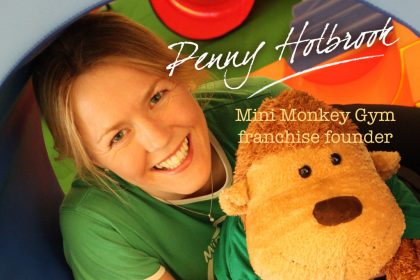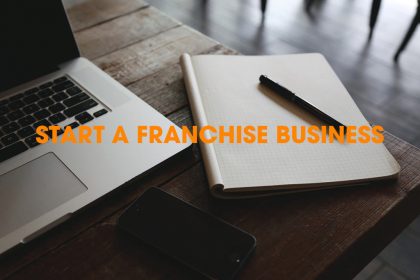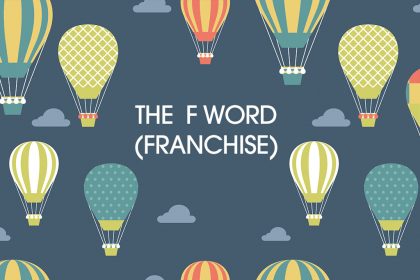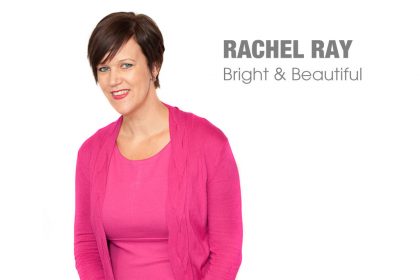When to buy a franchise (and when to run a mile)
Franchises tend to invoke a love or hate reaction in most people. Either you like the idea of buying a ‘company in a box’ or you think they’re a cheat’s way of starting a business.
The fact is, like any career decision, buying a franchise can be a perfectly brilliant (and profitable) idea, or a dreadful (and expensive) mistake, depending on your research, skill and ability. Luckily though, we’re here to help you spot the perfect opportunities, and run fast from the turkeys.
Questions to ask yourself before you buy
There are lots of different franchise models and choices out there. And very few will be right for you. We believe that you should approach a franchise opportunity just like you would every other career decision, and ask yourself some basic questions:
- Is it something I will love doing?
- Does it use my skills and experience?
- Does it challenge and push me?
- Do I have the time and resources to make it a success?
Don’t get carried away in a slick franchise scheme’s attractive marketing campaign, or a friend’s gushing experience. Just because the model is right and works for others, doesn’t mean you’ll have an equally positive experience.
For example, if you buy a franchise that requires you to work with children and you don’t have the right personality for the job, you’ll hate every second of your working day, and the children will notice. They (and their parents) will have a poor experience and they’ll pretty soon stop buying your product or service.
Or if your franchise depends on great sales skills and you lack the belief in what you’re doing or confidence to approach strangers and ask them to part with money, again you’ll begin to dread working and make little from your investment.
On the other hand, if you analyse carefully what you want out of a business, what skills you have, and you research carefully, you can pick the perfect franchise and enjoy making a real success out of it.
When to buy a franchise?
Some people just aren’t interested in franchises. They’d rather start their own business from scratch, develop their own ideas and learn from the experience as they test their own, new business model.
But not everyone is a die-hard entrepreneur. Some people prefer to take on a proven business model, take advantage of the lessons already learned and start a business they’re pretty sure will succeed.
When you buy a franchise you don’t just get the benefit of the business idea. You reap the rewards of an established brand name, an existing marketing campaign, an ‘out of the box’ business model you can immediately run, and a community of support.
You don’t always need any experience in the franchise’s field (although it’s always better to have at least an interest in it, and at best the right skills to make a success of it) or indeed any business experience. Franchises usually come with training, lots of support and guidance on how to make them a success.
You also have the backing of a big business behind you – giving you access to suppliers and discounts that would be out of the reach of many small businesses.
And when not to buy?
So when should you NOT buy a franchise? As we’ve already discussed, it’s a wise idea to avoid franchises that involve tasks you don’t enjoy or are not good at. Any business, whether it’s a franchise or not, is going to take hard work and dedication, and if you hate what you do, or don’t have the aptitude or skills for it, you’ll soon lose motivation and confidence.
It’s also not a great option if you’re someone who likes autonomy. When you buy a franchise you’re buying into a system that usually leaves little opportunity for you to be creative. You don’t ‘own’ the business, you’re simply leasing the right to operate it in your area. And as such you’ll be expected to follow set rules to the letter.
You may even be subject to regular visits and check ups to make sure things are running smoothly, especially when you first launch. On the plus side, you’ll have support on hand if you’re not sure about something or are making mistakes. But again if you’re someone who likes to be in charge, you may not enjoy that level of monitoring.
Another downside to the lack of independence is reputation and performance. Your franchise is just one part of a larger whole, and affected by the performance of that whole. So if things are going well, all businesses are performing well and there’s lots of profits to throw at marketing and strategy, then great – you can only benefit.
But if times get tough, and the business makes poor decisions or stops investing in marketing or updating their products and services, your business could suffer – however hard and well you work. You’re also impacted by the reputation of other franchisee holders, who may be affecting the way potential customers view the brand name as a whole, and therefore impact on your own sales.
Researching a franchise opportunity
Before you part with cash for a franchise business, make sure you do your research. Start by investigating the market – is there a need for this business in your area? How much competition is there? Is the business model standard for that type of business? And if not, does it really work?
You also need to do your groundwork on the franchise business. Find other franchisees and ask them what their experience has been. Has the company delivered on their promises? Is the model sound and their profit predictions accurate? And don’t just contact the select few people the business puts you in touch with – chances are they’re their star franchisees! Seek out other franchisees for a more balanced picture.
There are also plenty of opportunities to get clued up about franchising full stop. From the British Franchise Association (BFA) and Which Franchise websites, to publications like The Franchise Magazine, Franchise World and Business Franchise Magazine.
You can also find lots of mum-specific franchise wisdom, resources and support on the Mums in Franchise site, founded by ex-corporate lawyer and experienced franchisee Emma Holmes.
The more you know about franchising in general, and your franchise opportunity in particular, the more likely to you are to make a wise financial decision – and not an expensive mistake.
Funding a franchise
Buying a franchise isn’t cheap, especially if it’s an established business with a proven success model. So before you get too excited about the opportunities available, work out what you can afford to invest – and how. Do you have enough savings for one outright, or do you need to borrow money?
The BFA has a helpful list of the UK banks that are specialists in franchising, and have specific teams to work with franchise business loans. They advise approaching these teams rather than your usual bank manager.
Make the right decision for you
So it’s clear that franchises aren’t for everyone. But if you’ve got the the right qualities and do your homework, you may just find an opportunity that is perfect for you.










